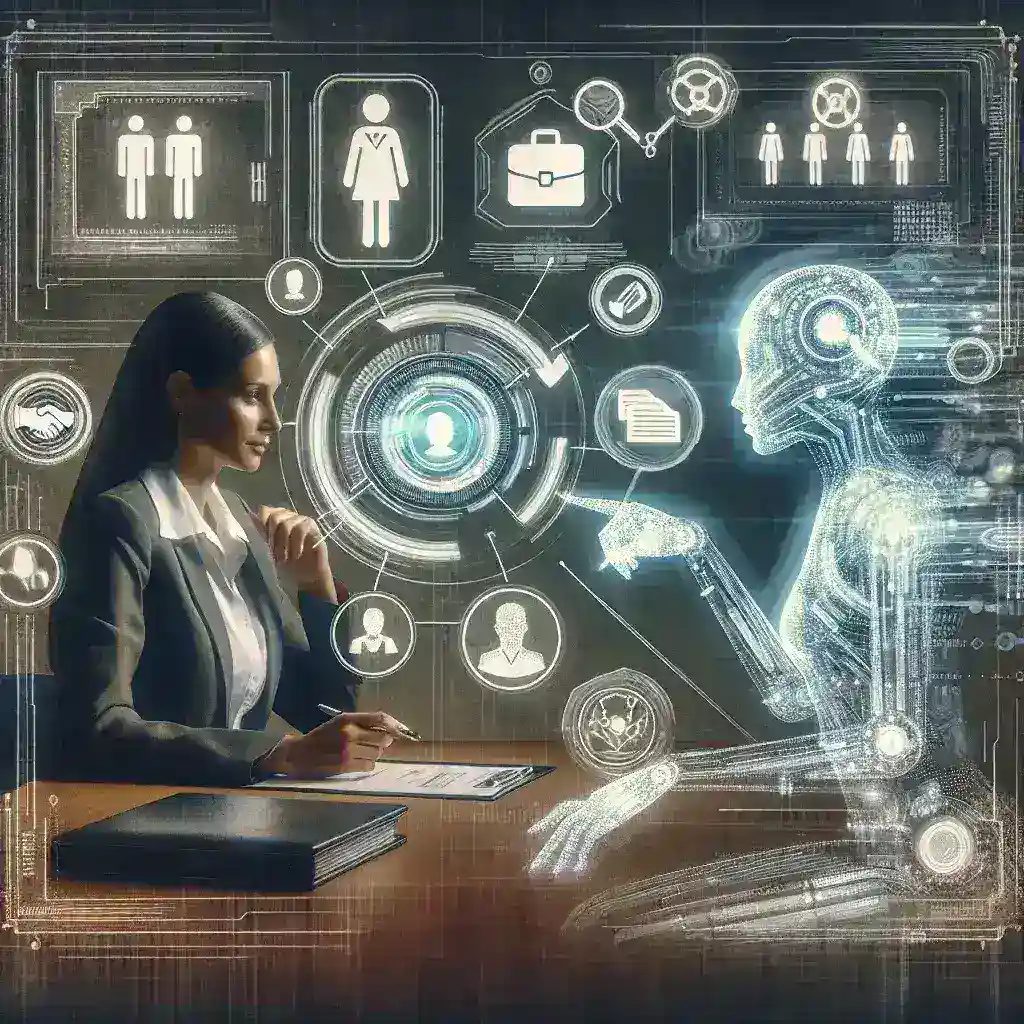Artificial Intelligence (AI) has revolutionized multiple industries, and Human Resources (HR) is no exception. From recruitment processes to employee engagement and performance monitoring, AI’s capabilities are profoundly transforming traditional HR functions. This article delves into the various ways AI is being integrated into HR, its benefits, and the potential challenges it presents.
AI in Recruitment
Recruitment is one of the most critical functions in HR, and AI has significantly impacted this domain, offering a range of tools that streamline the process and improve efficiency.
Automated Resume Screening
One of the most time-consuming tasks for recruiters is sifting through resumes. AI-powered tools can scan and filter resumes based on specific criteria such as skills, experience, and qualifications, significantly reducing the time required for initial screening.
Candidate Sourcing
AI algorithms can scan numerous online platforms, social media, and job boards to find potential candidates who match the job requirements. This enhances the talent pool and increases the chances of finding the best fit for the role.
Interview Scheduling
Coordinating interviews can be a logistical nightmare. AI tools can automatically schedule interviews based on the availability of both candidates and interviewers, minimizing back-and-forth communications and reducing delays.
AI in Employee Onboarding
Efficient onboarding processes are crucial for new hires to get acclimated to their new roles and the company culture. AI simplifies onboarding by offering personalized and interactive experiences.
Chatbots for Initial Queries
AI-driven chatbots can handle common queries from new employees, such as company policies, benefits, and other onboarding-related questions. This frees up HR professionals to focus on more complex tasks.
Customized Learning Plans
AI can analyze a new employee’s skills and create customized learning and development plans to bridge any skill gaps. This ensures that new hires are well-prepared for their roles from the start.
AI in Employee Engagement and Retention
Employee engagement and retention are critical for organizational success. AI offers innovative ways to keep employees engaged and minimize turnover.
Predictive Analytics
AI can analyze various data points, such as employee performance and engagement levels, to predict potential turnover. This allows HR teams to take proactive measures to retain valuable employees.
Sentiment Analysis
AI tools can assess employee sentiment by analyzing feedback from surveys, social media, and internal communications. This helps HR understand employee morale and address any underlying issues.
AI in Performance Management
Effective performance management is crucial for both employee development and organizational growth. AI enhances this function by providing objective and data-driven insights.
Continuous Feedback
AI-powered platforms can facilitate continuous feedback loops between managers and employees. This real-time feedback mechanism ensures that employees are aware of their performance and can make necessary improvements promptly.
Objective Performance Reviews
AI can analyze an employee’s work history, achievements, and skill development over time to provide a holistic and objective performance review. This minimizes biases and ensures fair evaluations.
Challenges of Implementing AI in HR
Despite its numerous benefits, integrating AI into HR is not without challenges.
Data Privacy and Security
The use of AI involves handling a significant amount of personal data, raising concerns about data privacy and security. Organizations must ensure compliance with data protection regulations.
Bias and Fairness
AI systems are only as unbiased as the data they are trained on. If the training data contains biases, the AI system will likely replicate them, leading to unfair decisions. It’s crucial to regularly audit AI systems for bias.
Employee Acceptance
The introduction of AI can be met with resistance from employees who fear that automation may replace their jobs. Effective communication about the role of AI as a tool to assist rather than replace them is essential.
The Future of AI in HR
The role of AI in HR is still evolving, and its potential is enormous. As technology advances, we can expect even more sophisticated tools that will further enhance HR functions. Future developments may include more advanced predictive analytics, enhanced employee engagement platforms, and AI-driven strategies for workforce planning.
In conclusion, AI is set to transform HR functions across the board, offering numerous benefits such as improved efficiency, better decision-making, and enhanced employee experiences. However, organizations must navigate the challenges carefully to fully leverage the potential of AI in HR.

